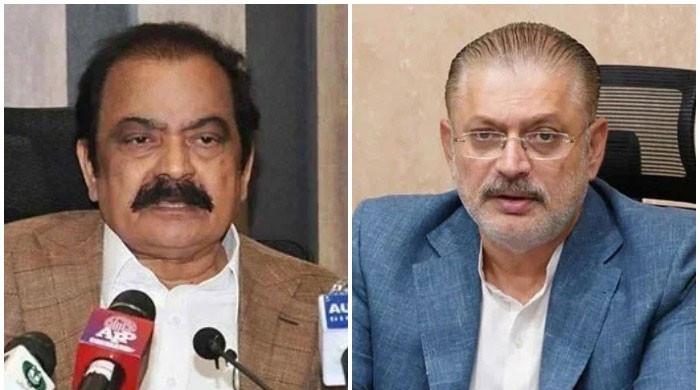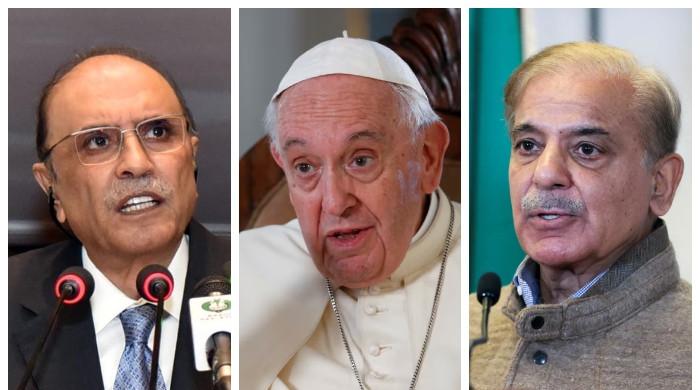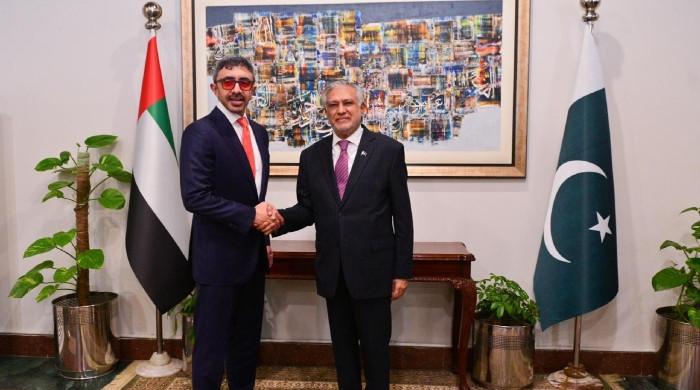In a first, EVMs to be used in Islamabad mayor polls, says science minister
“For now, the main testing ground [for EVMs] will be Islamabad,” Shibli Faraz says
January 06, 2022

Federal Minister of Science and Technology Shibli Faraz is confident that the electronic voting machines (EVMs) will be tested for the first time in the polls for the mayor of Islamabad, to be held later this year.
“For now, the main testing ground [for EVMs] will be Islamabad,” Faraz, the minister for science and technology, told Geo.tv. “If it is successful there, which I am certain it will be, then the Election Commission of Pakistan (ECP) will decide which election it wants to test the EVMs in next.”
Last month, the ECP, the autonomous body responsible for organizing free and fair elections in the country, wrote to the ministry to provide it with 3,900 electronic voting machines for the upcoming polls for the mayor in the capital city.
The polls are expected to be held in April or May, although an official schedule has yet to be announced.
In response to the letter, Faraz said they have provided a breakdown to the ECP of when the machines will be supplied.
“50 EVMs will be delivered by January 30. Another 1,500 by February 15 and the remaining by March. So, the nearly 4,000 machines will take around three months to manufacture.”
The technology will be used under a recently-passed, and controversial, law by the ruling party calling on the ECP to “procure and use… stand-alone electronic voting machines in general elections.”
The EVMs to be deployed, in the mayor polls, costs roughly $1,000 each, said the minister but added that the cost of a prototype is usually high. “When you manufacture a larger number of machines, the price [per unit] will decrease,” he said.
While the model of the machine, the minister explained, has been developed by a company called, Rapidev, located at the National Institute of Sciences and Technology in Islamabad.
Rapidev “is a startup,” the minister said, “Some people said it [Rapidev] is a Dubai-based company and this and that, but we completely supervised the development of the EVM prototype.”
However, Maqsood Ahmad, the general manager of finance at Rapidev told Geo.tv over the phone that their company was not a startup. “We are not a startup. We have an office in Dubai as well. In fact, our company began in 2017. And we have completed many projects with many government entities,” he said.
When asked which projects they worked on and which government departments they work with, the general manager said: “We cannot disclose the names.”
Neither does the website of Rapidev list any other project except developing an EVM and signing a Memorandum of Understanding to set up a technology park in Islamabad.
The website further adds only brief information about the services the company can provide, which include a smart street-lighting solution and social media marketing.
Ahmed also refused to share the cost of each EVM manufactured by his company.
When asked if Rapidev can produce nearly 4,000 EVMs by March for the polls of Islamabad’s mayor, Ahmed said his company is still waiting for a go-ahead, but they “are ready.”
“This is not a problem for us,” he added, without going into detail.











